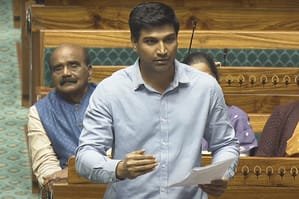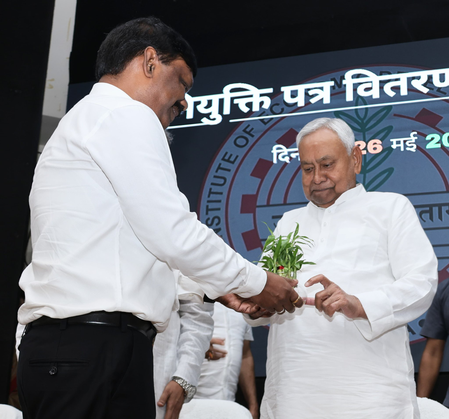
Amaravati, July 15 (IANS) The TDP has suggested strengthening electoral roll verification by conducting annual third-party audits under the Comptroller and Auditor General (CAG) of India, to identify anomalies. It also urged ECI to start the Special Intensive Revision (SIR) process in Andhra early and advocated that deletion of any voter must be based on a reasoned order, proper notice, and an opportunity to respond.
It also called for using Al-driven tools to flag duplication, migration, and deceased entries in real time.
TDP, a partner in the BJP-led NDA government at the Centre, made the suggestions in order to strengthen electoral roll management and enhance transparency in the electoral process.
TDP Parliamentary Party leader, Lavu Krishna Devarayalu, submitted a letter to Chief Election Commissioner Gyanesh Kumar in Delhi.
The TDP also urged the Election Commission of India (ECI) to ensure a time-bound grievance redressal mechanism at the Block-Level Officer (BLO) and Electoral Registration Officer (ERO) level to promptly rectify wrongful exclusions.
It suggested standardising door numbers nationwide as a policy measure to strengthen electoral roll verification.
The TDP favoured rectification of duplicate Electoral Photo Identity Card (EPIC) numbers with the help of Aadhaar.
“Expedite the issuance of unique, non-repeating EPIC numbers nationwide. Allow Aadhaar-based cross-verification with robust data privacy protections. Replace the ink-based verification process with a biometric verification process,” reads the letter.
Political party participation should mandatorily involve Booth Level Agents (BLAs) from all recognised parties throughout the revision process, the TDP said.
It suggested pre-publication and sharing of draft rolls with BLAs compulsorily to enable real-time verification.
It also called for publishing district-wise data on voter additions and deletions with explanations on the ECI portal.
“Implement a real-time public dashboard for tracking voter grievances and their resolution,” the TDP said, while seeking statutory timelines and penalties for inaction or misconduct by EROs/DEOs (District Election Officers).
The TDP urged the poll panel to empower State Election Watch Committees to function with observer status during roll revision.
It mooted rotation of BLOs and EROs to prevent local influence or partisan misuse. It also wanted appointment of a state-level Ombudsman under the ECI to handle unresolved political grievances related to the electoral rolls.
Conduct targeted re-enrollment campaigns for migrant workers, tribal groups, elderly, and homeless citizens. Permit temporary address declarations with basic documentation to avoid disenfranchisement of mobile populations, it said.
As Andhra Pradesh is not due for Assembly elections until 2029, the TDP recognises that any future SIR provides a valuable opportunity to ensure that the electoral rolls are updated in a fair, inclusive, and transparent manner.
It urged the ECI to start the process in the state as early as possible.
“To ensure voter confidence and administrative preparedness, the SIR process should be conducted with sufficient lead time, ideally not within six months of any major election. Voters who are already enrolled in the most recent certified electoral roll should not be required to re-establish their eligibility unless specific and verifiable reasons are recorded,” it said.
The burden of proof lies with the ERO or objector, not the voter, especially when the name exists in the official roll. The purpose of SIR must be clearly defined and limited to electoral roll correction and inclusion, the TDP said.
“It should be explicitly communicated that the exercise is not related to citizenship verification, and any field instructions must reflect this distinction,” it said.
Stating that Andhra Pradesh has high levels of seasonal migration, particularly from rural and coastal regions, it said SIRs should deploy mobile BLO units and accept temporary address declarations to prevent exclusion of migrant workers and displaced families.
“We request the Commission to issue clear procedural guidance stating that deletion of any voter must be based on a reasoned order, proper notice, and an opportunity to respond. Where voters are unable to submit documents at the time of visit, stage-wise verification should be permitted, instead of immediate exclusion,” it added.
–IANS
ms/rad






